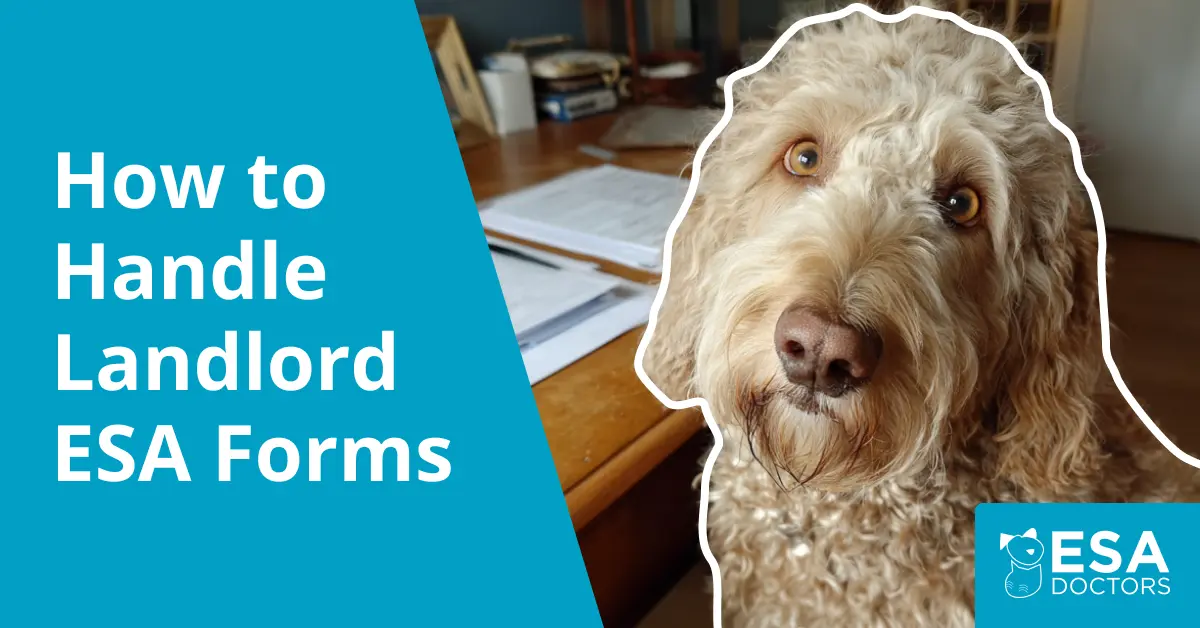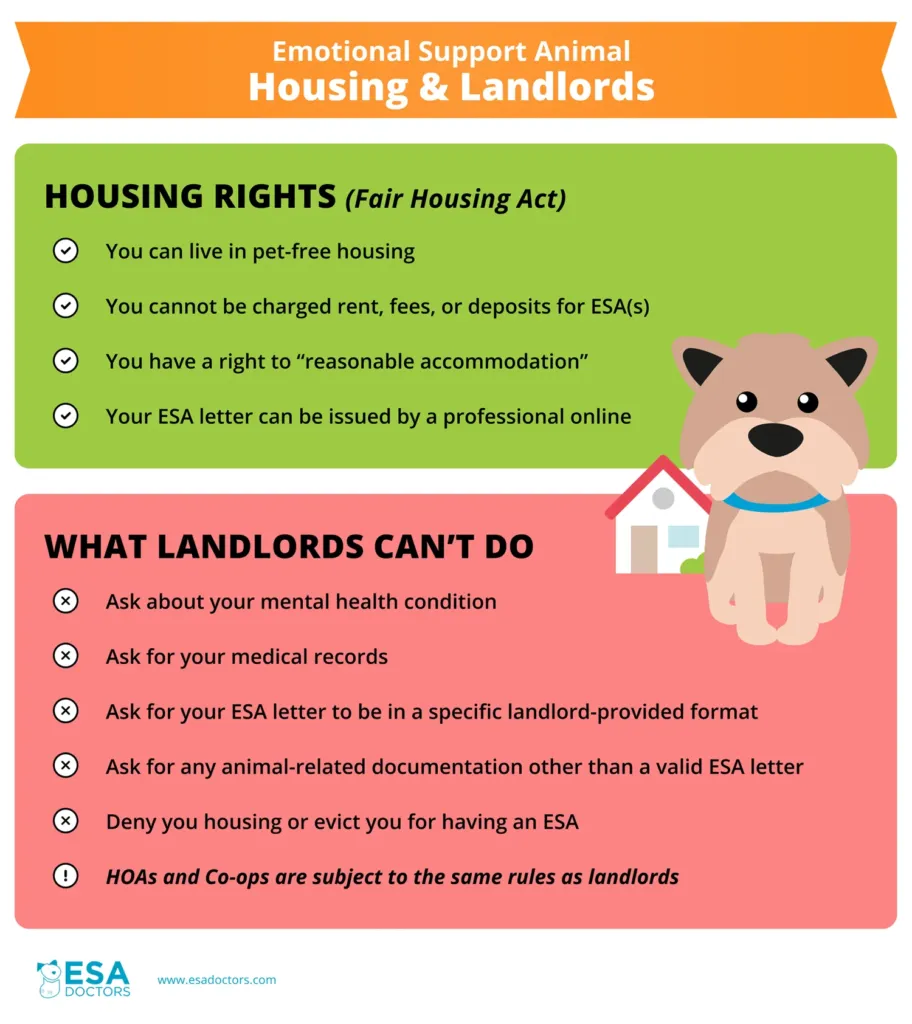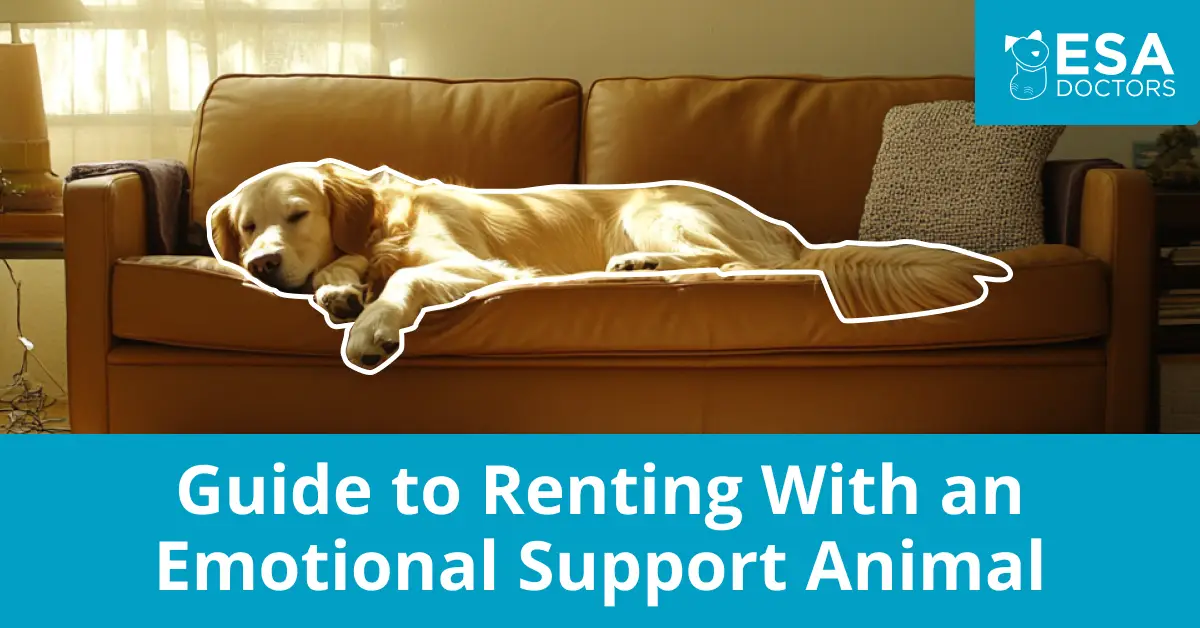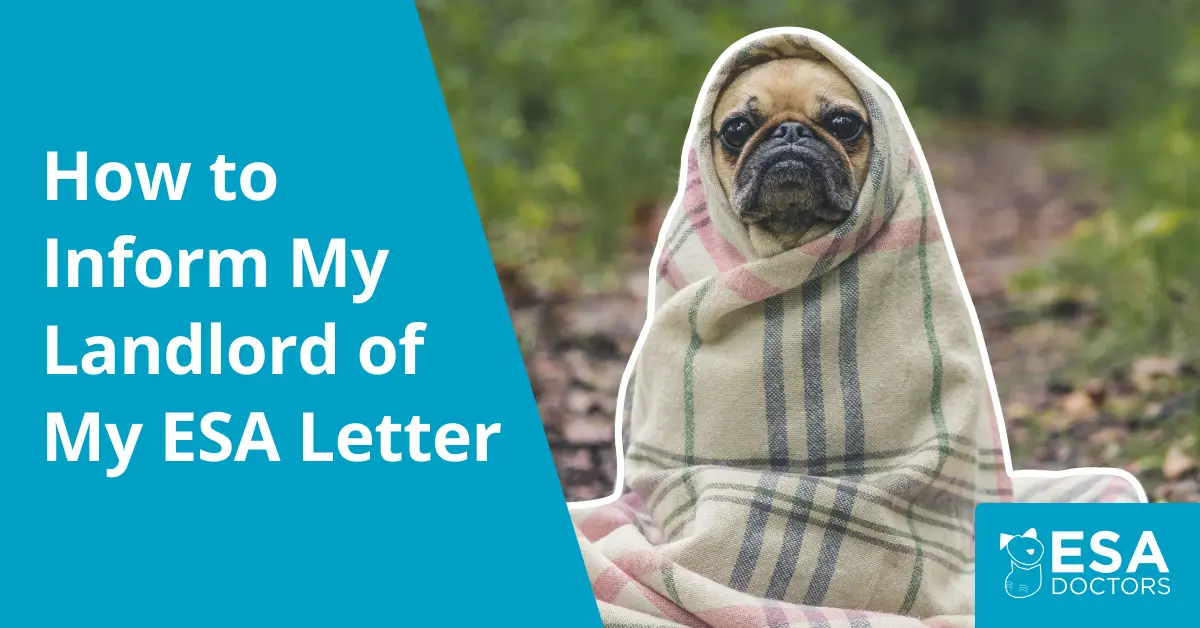If you gave your landlord an ESA letter for your emotional support animal and they responded with additional forms to fill out, they might be violating the latest HUD housing rules, which says the following:
“Housing providers may not require a health care professional to use a specific form…to provide notarized statements, to make statements under penalty of perjury, or to provide an individual’s diagnosis or other detailed information about a person’s physical or mental impairments.”
In this guide, we’ll show you what is and isn’t allowed when it comes to landlord forms.
Forms That Are Not Allowed (Medical Info)
Your landlord cannot dig into your personal medical affairs, period. Here’s what they absolutely cannot ask for:
Medical History Questions
Any form asking “What medications do you take?” or “How long have you been in treatment?” is off limits. Requests for your medical records are also not allowed. They don’t need to know these details about your health.
Diagnosis and Severity
HUD has clearly stated in its guidelines that “Disclosure of details about the diagnosis or severity of a disability…cannot be required.”
Notarized Letters
HUD says landlords cannot require notarized ESA letters. Your provider’s regular signature is enough.
Second Medical Opinions
Some landlords try to make you see a specific doctor for verification. As long as your ESA letter came from a licensed healthcare professional and meets HUD guidelines, you don’t need to see another local doctor.
Requests for Medical Examinations
HUD has also stated that landlords can’t request medical examinations as a requirement for having an emotional support animal.
Here are some examples of questions that would violate HUD guidelines:
- “What medications are you currently taking for your condition?”
- “How long have you been receiving treatment for your disability?”
- “What is your specific diagnosis or medical condition?”
- “Rate your disability on a scale of 1-10 in terms of severity.”
- “What type of therapy or counseling do you receive?”
- “Have you been hospitalized for your condition in the past year?”
- “Please provide your complete medical records from the past two years.”
- “Please give us permission to speak to your therapist about your mental health.”
What Might Be Okay (Basic Info Only)
Not every form is trying to invade your privacy. Some requests that ask for basic confirmatory information from you might be okay.
Simple Confirmation Forms
A basic form that says “I confirm I’ve provided documentation for my assistance animal” is just paperwork for their files.
Animal Information Only
Your dog’s name, weight, breed, age, and color are fair game. They can ask if your pet is vaccinated. These details help them ensure your ESA is healthy and identify your animal if needed.
Veterinary Contact Info
Asking for your vet’s phone number or proof of rabies vaccinations makes sense. They want to know your ESA is healthy, which protects everyone in the building.
When you give your ESA letter, consider including a photo of your animal and vaccination records right away. Write something like: “Here’s my ESA documentation from Dr. Smith, along with Max’s vaccination records and photo for your files. Let me know if you need anything else about Max.”
Push Back on Intrusive Demands
When a landlord gives you invasive forms, it’s important to advocate for yourself. Respond carefully but firmly, as getting angry won’t help your situation. You want to educate them about HUD’s guidelines, and not start a fight that could make your housing situation difficult.
Write back, thanking them for processing your request before explaining that HUD guidelines say your ESA letter is complete documentation. Mention that federal guidelines don’t allow requests for medical details, diagnoses, or notarized statements, keeping your tone professional throughout. A simple response might be: “I’ve provided my licensed therapist’s letter confirming my need for an emotional support animal. According to HUD’s January 2020 guidance, this fulfills the documentation requirement. I’m happy to provide Max’s vaccination records and veterinary contact information.”
Save everything they give you, including every form, email, and text message. If they call you, send a follow-up email saying something like “Just to confirm our phone conversation today, you asked for my medical records and I explained that’s not required under federal law.” This paper trail protects you if things escalate.
Keep in mind that most landlords are great about ESAs, and they just want to follow the rules while protecting their property, so you can definitely work with them. If a landlord seems confused rather than hostile, help them understand by sharing HUD’s guidance document and explaining that you want to do things properly. Most reasonable people will appreciate this approach and work with you to find a solution.
Show that you’re a responsible pet owner, as this builds trust and makes the entire process smoother. Find out what your landlord’s real concern is. If it’s about damage or noise, you can address these concerns directly by talking about how you’ll prevent problems.






Leave a Comment